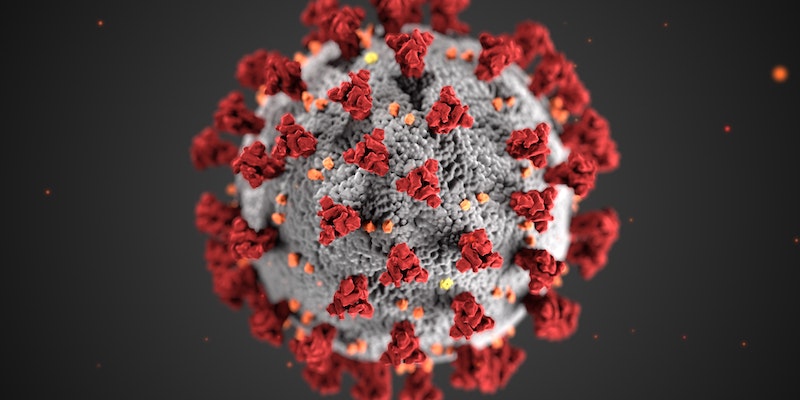Certain things should be on your mind before beginning an intermittent fast. It is perfectly normal to experience specific adverse symptoms when attempting a new eating pattern or starting a new diet. The symptoms are triggered as your body tries to find a way to adjust according to the intermittent fasting by age chart. Although it largely depends on an individual's weight and eating habits, some may experience more severe side effects.
The majority of symptoms cause a minor degree of discomfort. Although this may indicate a problem, severe adverse effects should be considered. Before implementing calorie restriction, intermittent fasting novices should always begin with a light routine. What are the potential adverse consequences, and can they be mitigated before commencing?
Sleep Issues
Sleep disturbances may result from intermittent fasting (IF), a practice often associated with asthma development when reading the intermittent fasting by age chart. Hormonal fluctuations and additional physiological transformations induce this phenomenon during a 36 hour fast. Fasting can result in a reduction of melatonin, an essential hormone for regulating sleep.
While this is not a universal occurrence, it is quite common, especially during extended periods of a 36 hour fast. Insufficient sleep can exacerbate the hindrance of weight loss. Why? Hormones have the potential to induce heightened appetite and subsequent snacking when individuals experience sleep deprivation. It is imperative to exercise caution when it comes to consistent fasting. Prolonged IF may give rise to adverse effects, including sleep disturbances, hypertension, and depression.
Digestion Problems
Individuals with sensitive stomachs may experience digestive symptoms when attempting intermittent fasting. Diarrhea, constipation, bloating, or nausea are all potential postprandial symptoms. The digestion process may be slowed due to dietary restriction, which has the potential to disturb the digestive system's equilibrium.
Time-restricted eating, which is sometimes advantageous for the gut in the short term, could backfire in the long run. Nutritional absorption and processing capabilities of the gastrointestinal tract, which are habitual, may be negatively impacted by intermittent fasting meal plan frequency. They are implementing IF daily would be a foolish decision. A persistent lack of nourishment is detrimental to one's health. Weight gain or other future health complications may ensue.
Increase In Hunger

After a predetermined duration of fasting, hunger pangs will ensue. This may be irritating for the body as it attempts to maintain ketosis. An individual experiences abdominal confusion when they make an abrupt transition from a regular dietary regimen to hours of intermittent fasting meal plan restriction. After some time, an individual becomes aware of the continuous rumbling sounds.
Fasting supplements comprise cellulose and glucomannan, two dietary fibers that suppress hunger. Furthermore, they enhance overall health by reducing cholesterol levels and bloating. Aim to consume nutrient-dense meals when not fasting. Increasing food consumption may alleviate the agony of hunger cravings. Beans, lean meats, nuts, whole fruits, seafood, and leafy greens are outstanding food choices.
Low Energy
Due to the absence of extended periods of eating, periodic fasting may induce fatigue. While the body adjusts to the intermittent fasting regimen, this is a typical side effect. Brain fog, characterized by impaired concentration, confusion, forgetfulness, and sluggish thought processes, is frequently the result of low energy levels.
Increasing your caloric intake throughout the fasting program can overcome this fatigue. Ensure a well-rounded consumption of essential nutrients, notwithstanding adherence to a low-calorie diet. This could consist of foods high in protein, such as eggs, chicken, and cheese, which provide the body with energy.
Additionally, ensure that you obtain adequate rest when attempting to lose weight. Physical activity can be enhanced, and augmenting energy levels can eradicate headaches linked to fasting. During intermittent 36 hour fast, it will be challenging to burn abnormally low body fat effectively if the participant feels too weak.
Low Blood Sugar
Diabetes can develop when you abstain from eating for an extended time, as during intermittent fasting. Those with hypoglycemia may initially find it particularly difficult to adjust to this. Consume a substantial intermittent fasting meal plan immediately if you observe your blood sugar dropping significantly during fasting.
What are the signs of having dangerously low blood sugar? Watch for signs and symptoms such as profuse perspiration, trembling hands and legs, excruciating headaches, and intense hunger. Ensure your meals are rich in nutrients that maintain stable blood sugar levels to avert these symptoms during fasting. Alternating fasting days may be utilized as a blood sugar regulation strategy by individuals with type 2 diabetes.
Bad Breath
Frequent and undesirable, fasting results in bad breath. Alleviated salivation and an elevated acetone level within the organism are frequent etiologies. Conversely, reducing saliva production may lead to the recurrence of bad breath-causing oral bacteria. Although it may seem beneficial to chew mint gum while fasting, doing so is not advised.
Calorie-free gum may induce bloating and constipation by deceiving the body into believing it is consuming food. Conversely, prioritize oral hygiene by regularly flossing, brushing, and sanitizing your tongue and teeth! Bear in mind that temporary bad breath is common during fasting. It becomes less noticeable as your body adjusts to the new eating pattern. Meanwhile, exercise patience and keep your mouth clean.
Reducing Adverse Effects Of IF

Although it is conceivable to alleviate the negative consequences of fasting, one should be informed about its merits and drawbacks before embarking on this dietary regimen. Here are some tips for mitigating the negative effects of intermittent fasting:
Medical Consultation
Obtaining a medical consultation before initiating any activity is of utmost importance. Individuals with specific medical conditions or undergoing medication must receive additional guidance. Consult with a healthcare professional regarding potential adverse reactions; such consultation is advised.
Nourishing Foods
Individuals who are attempting to lose weight must consume a nutritious diet. Ingestion of improper foods, which are detrimental to the body, may induce these adverse physical changes. Supplement your diet with vitamins, protein, carbohydrates, and water regularly.
Get A Tracking App
It’s suggested that you use an app tracker for monitoring your fasting regiment and make sure that you’re doing it within the safety guidelines. There are many apps available that you can use and set according to your preferences.







